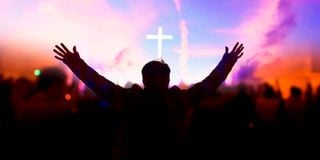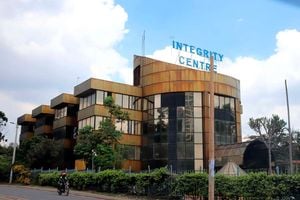Religious bodies should be voice of reason for nation

Apart from their prophetic role, most religious groups have often served as sanctuaries for politicians and their selfish agenda.
Religious movements have a critical role in the transformation of key services such as education, healthcare and counselling support while focusing on mission and evangelism.
The success of faith-based institutions such as Daystar University, St Paul University in Limuru, Kenya Methodist and Baraton University, Umma University are all a clear testament of how they have immensely shaped the education history of the nation. The religious institution has immersed itself in the sociopolitical process of this nation since the introduction of the multiparty era and emeritus clergyman of the PCEA, Rev Timothy Njoya is a living testament.
So even as the religious bask in glory for their unshakable role, they have also been accused of benefiting from the political leaders. It was not a secret that former President Daniel arap Moi was accused of allocating public land to the African Inland Church, which during his 24 year reign of power, served as a State church.
The era of Mwai Kibaki saw churches taking a back seat and only emerged at the rapture of the 2007 post-election violence. When Uhuru Kenyatta was president, he rallied the clergy to offer prayers for the nation, and more importantly, during defining moments when BBI conversations were tearing the national fabric.
So, why are religious groups so powerful in Kenya and across the continent? They do have a growing population and, hence, as representatives of millions of members drawn from mainstream and ecumenical congregations in the promotion of Christian unity, they wield enormous power and influence in public space. But against their clamour, the story also indicates over the years the clergy benefiting from economic, development and presidential appointments in areas of peace-building, and anti-corruption initiatives, which its current chairman Bishop David Oginde is at the mercy of presidential power as the National Assembly seeks to oust him from the position.
Therefore, whenever the political class has been in crisis, the religious movements have offered dialogue and become a source of light and wisdom. The religious movement would find it impossible to unlink themselves from accusations of being a conduit of tribalism, and this is seen in how power and leadership transitions are done.
The Kenya Methodist Church has been identified with the Meru, just as the Africa Inland Church for years has been associated with the Kalenjin community. It was surprising to see a Maasai appointed to helm of the African Inland Church, which for years was a reserve of the Kikuyu, Luhya and Kamba. The SDA for years has been linked to the Kisii community and the larger Nyanza region.
Apart from their prophetic role, most religious groups have often served as sanctuaries for politicians and their selfish agenda. This association has brought the reputation of the church in question. Prayers must be offered in faithfulness in tandem with our actions as good stewards of the environment and the political power entrusted upon the leaders by the people.
Mr Lemargeroi is a governance-political analyst and Mandela Washington Fellow. [email protected]





